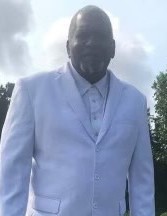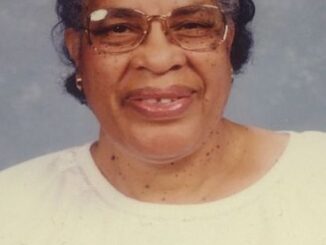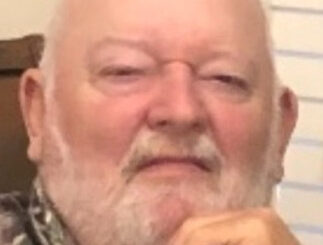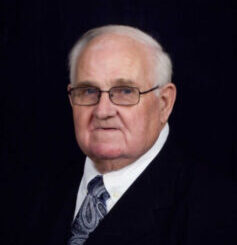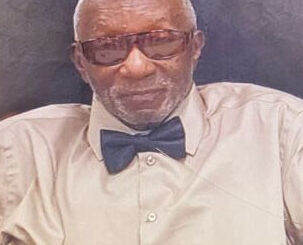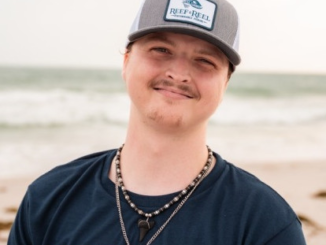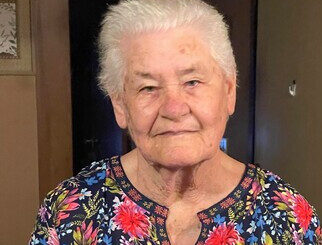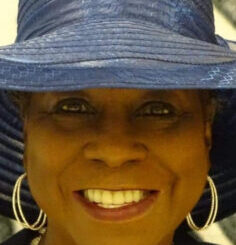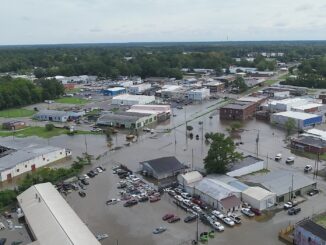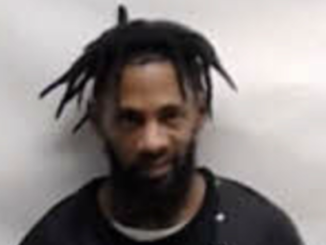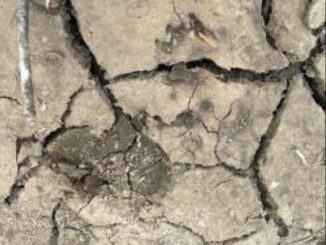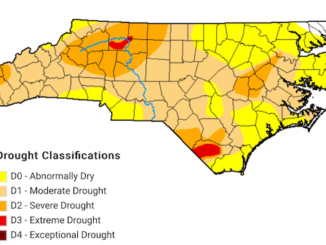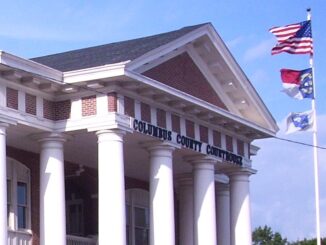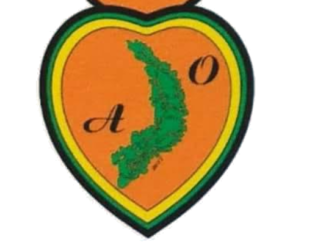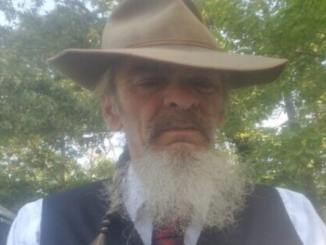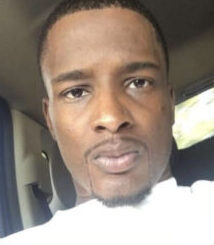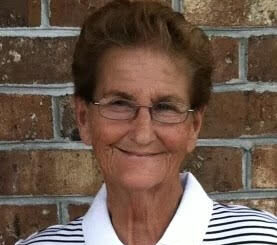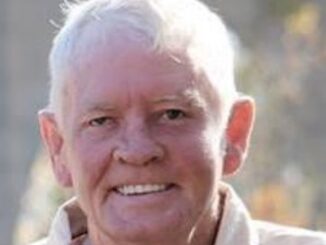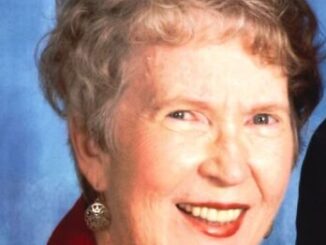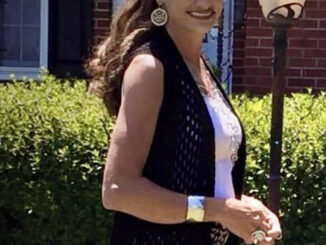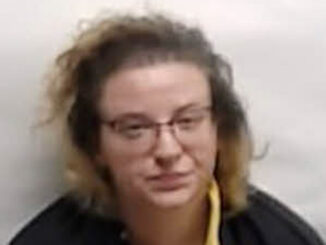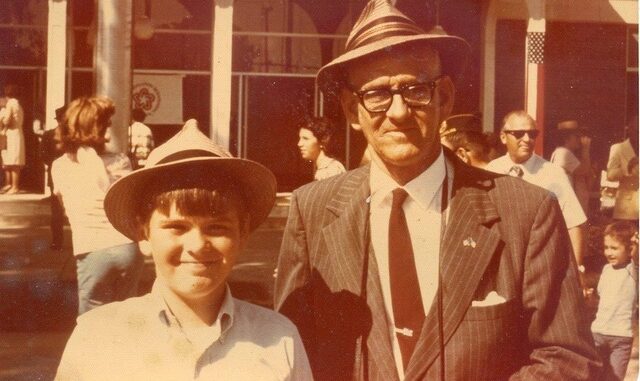
I got out of the truck and a gust of wind threatened to steal my Stetson. I caught it before the Stratoliner could live up to its name, pulled the hat down firmly, and ran the brim.
I happened to catch my reflection in a window, and had to stop.
Not because I am some gray-bearded Narcissus, admiring myself, but because for just a half-moment, I saw my father. Yes, he preferred a fedora to my wider brim, and he never intentionally had a beard or long hair, but for a second I saw what other folks have noticed.
Somewhere there’s a photo of a significantly younger version of me with my father. We were at the dedication of a monument in our hometown, and while it wasn’t a Sunday-dress occasion, Miss Lois made sure I was wearing a better shirt than usual that day, a fresh white one like my daddy. I was wearing a hat like his, too. That was about the age I began watching him closely, wanting to do things like my dad.
That would change to some extent in a few years, of course, because let’s face it, teenage boys sometimes have a bad case of the stupids. Thankfully I got over that after a while, since in my heart, I still wanted to be like my father. As a little kid, I wanted to play a saxophone, drive across the country and hitchhike at least part of the way back, be a good (if not outstanding) baseball player, and do so many of the other things that he did as a youth. I wanted to be strong and brave and smart like he was.
Later, I wanted to be respected and sought out for my opinion. I didn’t understand at the time, although he tried to help me, that such things were earned, not just granted— and worse, they came with a lot of responsibility.
I was a late in life child for my father, so he always appeared old to me; he was almost white headed and aged 50 when I was born. Many of my contemporaries had fathers ten or fifteen years younger. It became natural for me to refer to him as The Old Man. Even though I meant it as a term of respect, having devoured Ruark’s autobiographical collections about his grandfather, it sometimes hurt Papa’s feelings. He didn’t really let that be known, of course, because men didn’t do that.
I called him The Old Man, but often he could run a man half his age into the ground. Not literally, of course, but he had a drive, a quiet determination that was recognized and sometimes feared by those who saw him striding down the street to the courthouse. A pastor friend once stopped him and asked where he was going, and Papa said he was “searching for the truth.” He found it that day, too, and in a thousand words or so, wrote a story that may not have changed the world, but by cracky, it made a huge difference in the community, one that resonates even today, forty-plus years later. That drive carried through to everything, whether it was a difficult home improvement project or catching a runaway dog or fighting for a candidate he felt needed to be elected.
Papa always sought the truth. He followed the rule of trust but verify before Reagan (his favorite president) made it a catchphrase. Tom Weaver couldn’t stand a liar; he had little use for a thief, even one who was driven to the desperate measure of stealing to feed a family. I know of one incident where he helped a family in just those circumstances — after writing about the arrest of the thief.
My father had a heart, possibly too big of one in some folks’ eyes, but that was him. After his funeral, I found out that many of those visitors to the front porch on Cutchin Street in Clinton were not necessarily there for stories, but often for his counsel. Papa was an alcoholic, having quit drinking in 1940 or so, and he helped walk others down a path to sobriety. His advice was always good, whether it was politics or matters of the heart.
He would not just tell you what you wanted to hear, but what he felt you needed to hear. At the same time he wasn’t bombastic about it. It was rare for him to lecture or shake a finger, unless he’d been pushed entirely too far. Usually opinions, advice or correction came in an even tone delivered while his long fingers steepled at about the level of his chin, followed by a thoughtful glance into space, then his intense eyes looking over his black rimmed glasses as he answered.
Many of the things I do are because I started out wanting to be like my father. Later, I realized it wasn’t just hero worship, like any boy should be about his dad, but because I wanted to do right, and sometimes the outward appearances and habits are just tools that can help guide us toward those goals, like sturdy shoes for an athlete, or a quality saw in the hands of a craftsman.
I realized well before he died that Papa was trying his best to teach me to do right. He wasn’t just trying to get me to dress in a way to show respect to others and my trade. He wasn’t being pedantic when he insisted on measuring things twice, or avoiding rushed decisions, or any of a thousand other habits.
He was not trying to teach me to be a mirror of him, but to continue the things he considered important— faith in God, devotion to one’s wife and family, the reason you carry and sharpen a pocketknife, why patriotism matters, loyalty to friends, and all the rest. He wanted me to understand that sometimes, you do your best and still fall flat on your face, but it’s not the failure that counts. Rather, it’s your response. He wanted me to tell my wife that I love her, and tell her a lot. He wanted me to understand that being kind to animals is not a weakness, but a strength.
He wanted me to know these things and more so I would be able to do what was necessary when he was gone, when I no longer had his counsel, when I would have to make the decisions that he made. He wanted me to know that failure wasn’t terminal. Like any good father, he didn’t want me to have to make the same mistakes he did. Like any son, I still have and do make some of the same mistakes, but I can also hear him reminding me, not with a scolding “I told you so”, but more on the lines of helping me understand what I could have done better.
It was 23 years ago this week that Papa and I finished working out what few things we needed to close, and so were able to talk and laugh and recall various misadventures. He was dying, and he knew it, and he’d taught me all he could.
Indeed, he even taught me how to die like a gentleman, without fuss and bother. His last day, he beat me to the punch on morning rounds, calling the sheriff, the police department, and the magistrate. Then he gave me his notes to file his stories.
A little after noon, he simply told Mother that he was tired, and wanted to take a nap. I think she adjusted his hospital bed for him. I know they told each other one more time that they loved each other, and he just went to sleep. He achieved one goal he always joked about: publishing a story in the same edition of the newspaper as his own obituary.
The Old Man taught me how to live, how to love, how to hold my head up high in the worst circumstances, how to apologize, how to stand my ground, and how to help others.
The one thing he didn’t teach me was how to tell him goodbye.


